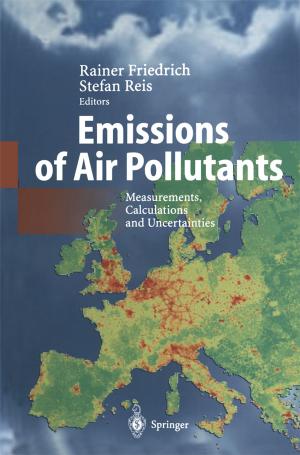New Perspectives in Regeneration
Nonfiction, Health & Well Being, Medical, Medical Science, Genetics, Physiology| Author: | ISBN: | 9783642358104 | |
| Publisher: | Springer Berlin Heidelberg | Publication: | July 8, 2014 |
| Imprint: | Springer | Language: | English |
| Author: | |
| ISBN: | 9783642358104 |
| Publisher: | Springer Berlin Heidelberg |
| Publication: | July 8, 2014 |
| Imprint: | Springer |
| Language: | English |
Regeneration, the homeostatic ability to maintain tissue structure in the face of normal cell turnover or loss of tissue damaged by trauma or disease, is an essential developmental process that continues throughout life. As recently as a decade ago, any serious discussion of the possibility of regeneration becoming a practical medical tool in the near future had the air of science fiction or over-optimistic speculation. The term “regenerative medicine” was certainly on many lips but few actually expected to soon see it applied in a clinical setting. A tidal wave of discovery has changed that and investigating the cellular mechanisms of natural regeneration has become one of the hottest topics in developmental biology and biomedicine in general. Many researchers entering the field find that the regeneration literature is still quite diffuse perhaps owing to the disparate biological systems that have been the object of study including hydra, planaria, newts, axolotls and more recently several mouse strains. The volume editors believe that an attempt to organize or systematize the literature is long overdue. In this volume, respected experts highlight the latest findings in vertebrate (including mammals) wound healing and regeneration. They present eleven reviews that cover a wide range of topics, from wound repair and its relationship to regeneration, through systems including lenticular, neural, and musculoskeletal tissues and limbs, to epigenetics and the role of the cell cycle. Nuclear reprogramming and cellular plasticity, which open the door for potential regenerative medical therapies for injury and degenerative disease, are recurring themes throughout the book. We are all now part of the regeneration revolution.
Regeneration, the homeostatic ability to maintain tissue structure in the face of normal cell turnover or loss of tissue damaged by trauma or disease, is an essential developmental process that continues throughout life. As recently as a decade ago, any serious discussion of the possibility of regeneration becoming a practical medical tool in the near future had the air of science fiction or over-optimistic speculation. The term “regenerative medicine” was certainly on many lips but few actually expected to soon see it applied in a clinical setting. A tidal wave of discovery has changed that and investigating the cellular mechanisms of natural regeneration has become one of the hottest topics in developmental biology and biomedicine in general. Many researchers entering the field find that the regeneration literature is still quite diffuse perhaps owing to the disparate biological systems that have been the object of study including hydra, planaria, newts, axolotls and more recently several mouse strains. The volume editors believe that an attempt to organize or systematize the literature is long overdue. In this volume, respected experts highlight the latest findings in vertebrate (including mammals) wound healing and regeneration. They present eleven reviews that cover a wide range of topics, from wound repair and its relationship to regeneration, through systems including lenticular, neural, and musculoskeletal tissues and limbs, to epigenetics and the role of the cell cycle. Nuclear reprogramming and cellular plasticity, which open the door for potential regenerative medical therapies for injury and degenerative disease, are recurring themes throughout the book. We are all now part of the regeneration revolution.















